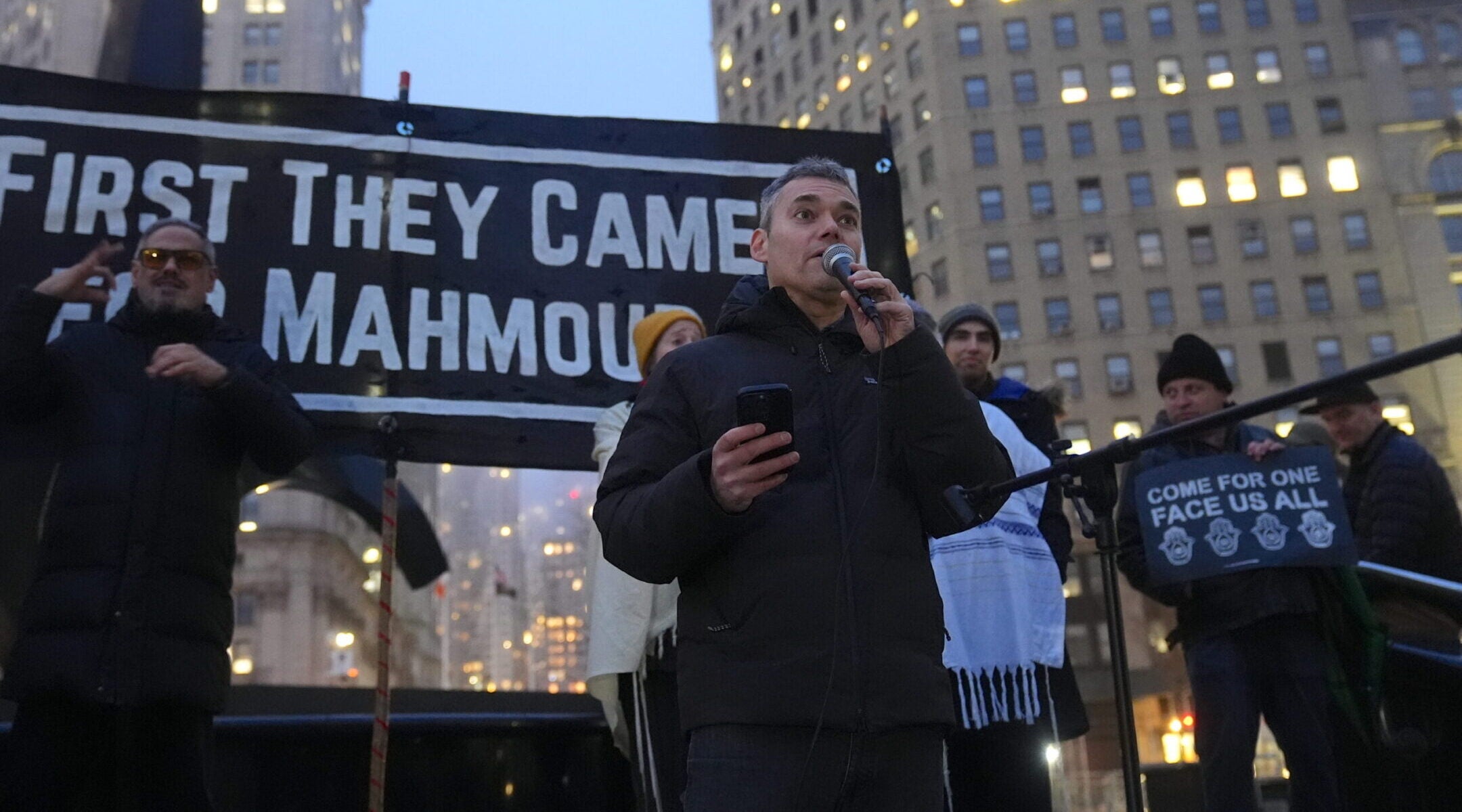Peter Beinart began his first social media post after his latest speaking engagement with an apology.
“By speaking earlier this week at Tel Aviv University, I made a serious mistake,” the progressive Jewish writer posted on X, a day after a scheduled appearance at the Israeli school.
The morning before, he had defended his plans, saying he saw “value in speaking to Israelis about Israel’s crimes.” Now, he said, “I let my desire for that conversation override my solidarity with Palestinians, who in the face of ethnic cleansing, apartheid and genocide have asked the world boycott Israeli institutions that are complicit in their oppression.”
Beinart’s apology came in the face of steep criticism from some on the anti-Israel left, where Beinart has long been one of the most prominent Jewish voices. The Palestinian Campaign for the Academic and Cultural Boycott of Israel, a founding member of the Boycott, Divestment and Sanctions movement, publicly and privately called on Beinart to cancel his talk, and he endured a bruising volley of castigation online.
Emphasizing that he had not been paid for his speech, Beinart said he had been motivated by wanting to influence Israeli Jews as he said he had with American Jews “with whom I strongly disagree, both to listen and in hopes of changing their minds.” But he said he had come to understand that he could have done that without speaking at an Israeli university, and that he had erred by not consulting Palestinians when making his plans.
“It’s embarrassing to admit such a serious mistake,” Beinart wrote. “I dearly wish I had not made this one, which has caused particular harm because international pressure is crucial to ensuring Palestinian freedom. This was a failure of judgment. I am sorry.”
PACBI did not publicly respond to Beinart’s apology. But the mea culpa ignited a wave of criticism of its own from Jewish and pro-Israel voices who said it typified an absolutist ethos in the progressive pro-Palestinian movement that they have long denounced.
“The dynamics of the radical left, especially the American one (which draws on puritanical patterns) demonstrated here include social pressure, incessant border-drawing, threats of boycotts, repeated demands to confess sins, and the perception of confession as a submission that redeems the guilty from the fate of traitors to the revolution,” tweeted the Israeli scholar Tomer Persico, who is currently on the faculty of the University of California, Berkeley. “This is a political-social space that is purist to the point of self-destruction.”
An Israeli trauma psychologist said Beinart’s apology reflected a stance she had seen before from abused women or people trapped in cults. “They start treating ordinary acts of agency — talking to someone outside the circle or forming a judgment on their own — as betrayals that must be confessed,” wrote Orli Peter in a widely viewed post. “This isn’t moral clarity; it’s fear wearing the mask of conscience.”
Some said Beinart’s apology landed in a historical pattern in which Jews who have sought to ally themselves with antisemitic movements are cast out themselves, sometimes with mortal consequences.
“No Jew is ever good enough for the Jew-hater,” tweeted the Scottish Jewish pundit Ben Freeman. “The goal posts are always moved. The Jew is always left begging for acceptance. They are the ultimate parvenu. Always seeking approval, never gaining it. A Jewish tragedy if ever there was one.”
Some moderate pro-Palestinian voices also weighed in critically. “This is truly embarrassing and deeply self-deprecatory behavior,” tweeted Ahmed Fouad Alkhatib, a Gazan emigre who is critical of much of contemporary pro-Palestinian activism and who himself spoke to an Israeli news organization this week.
“Asking for forgiveness because you spoke to Israeli students who belong to your tribe, are your people, and part of your community is not going to make you more liked, accepted, or embraced by the rabid elements of the ‘pro-Palestine’ movement and the BDS cultists who have long stopped viewing their efforts as a tactic and devolved into demonizing Jews, Israelis, and Zionists as the actual end goal,” Alkhatib added.
Before his apology, Beinart had spoken to a number of Tel Aviv students, including some who attended because they disagree with his views on Israel. Gabi Schiller, a social media activist who has worked at the pro-Israel advocacy group StandWithUs, wrote that some of her Tel Aviv University classmates had spoken with Beinart after his talk to challenge him on his ideas, including his promotion of a one-state solution.
“Putting aside the content of what they discussed, what took place in that moment was inherently valuable, despite how much I oppose Beinart’s stances: the exchange of opinion and ideas in an academic space in a respectful way,” Schiller wrote on Instagram, where she posts under the account name Yehudim Omrim. The experience, she said, was “increasingly impossible on North American campuses around domestic politics and certainly around the Israeli-Palestinian conflict where anti-normalization has become the new litmus test to be permitted into social spaces.”
Power the news that matters to you. Before 2025 ends, help (JEWISH REVIEW)’s independent, award-winning newsroom document Jewish history in real-time.




